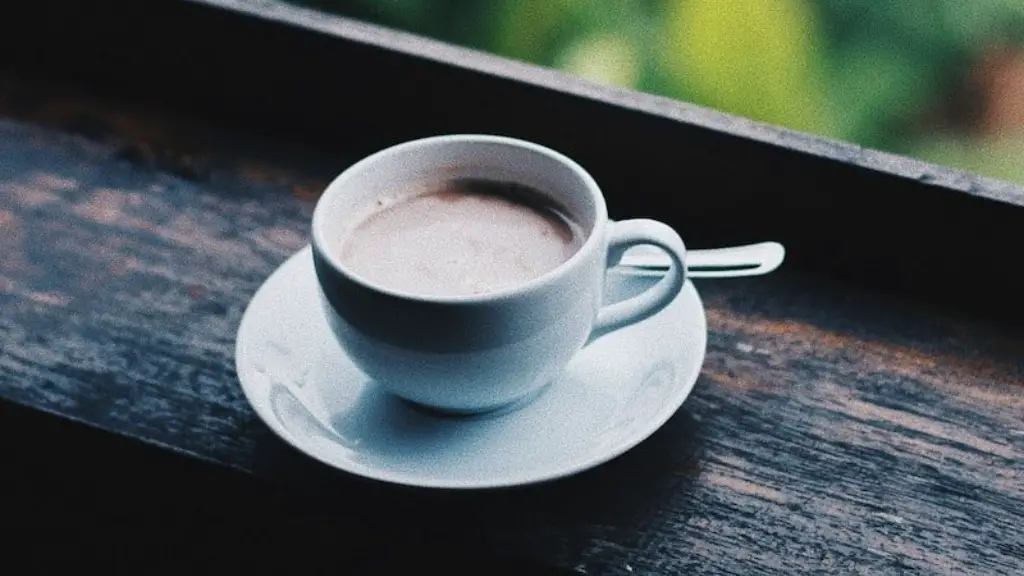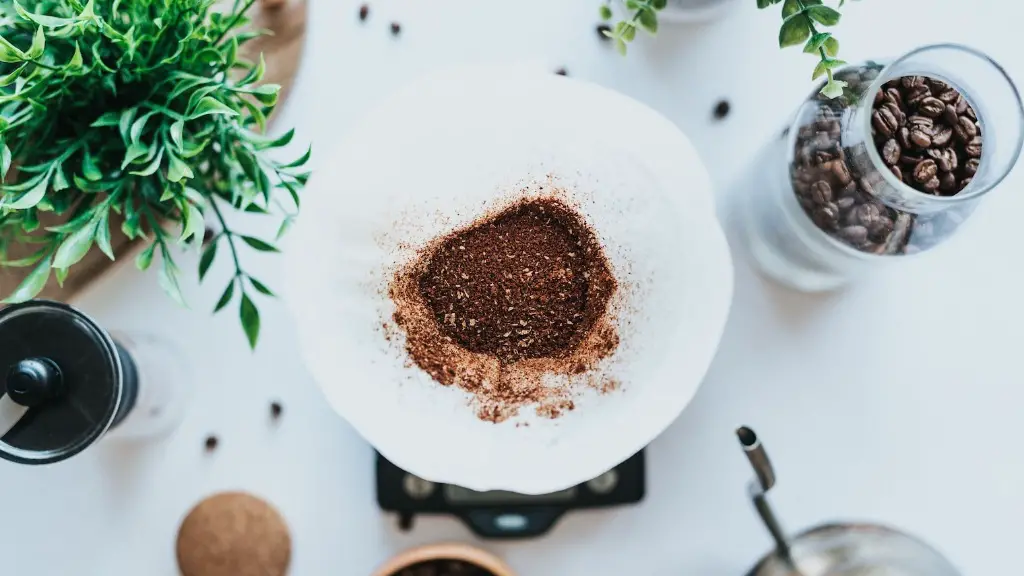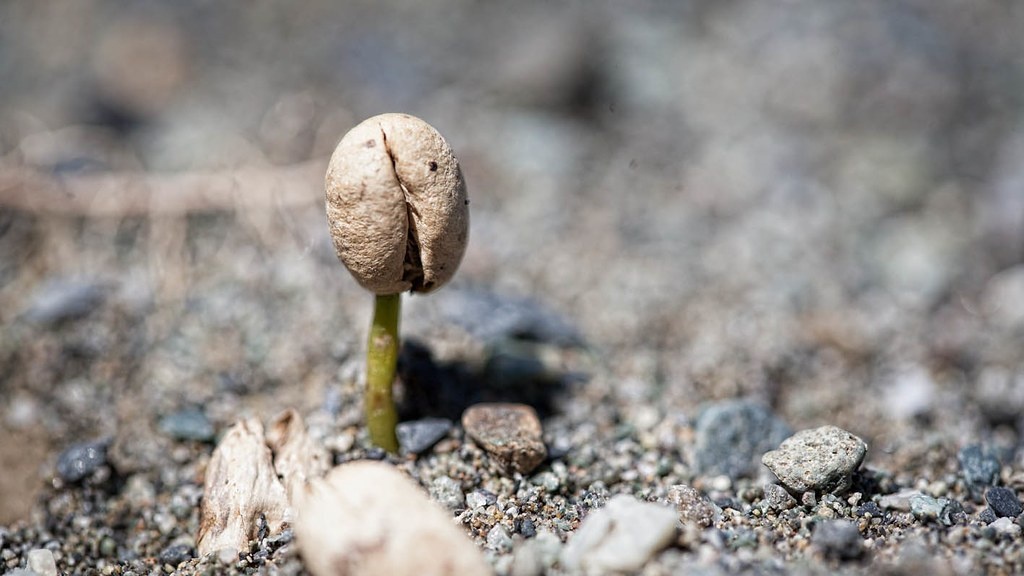Coffee is a beloved beverage for many, but for those who are trying to lose weight, even the type of coffee you drink makes a difference. Caffeine itself is known to be a natural appetite suppressant, and it is thought that drinking a cup of coffee daily may help with weight loss. But there are other important factors to consider when it comes to choosing the best coffee drink for weight loss.
In general, coffee is a plant-based drink that is naturally calorie-free, although calories can be added depending on what type of coffee you drink and what you mix with it. For example, adding cream and sugar increases the calorie content of a cup of coffee significantly. Similarly, adding a flavored syrup also increases the calorie content, as does adding a sugary, dairy-based creamer.
Aside from the added calories and sugar, some types of coffee drinks can contain high amounts of fat. For example, some popular coffee drinks like Frappuccinos, are essentially milkshakes with a lot of added sugar and cream. These drinks can be very high in calories and sugar and can easily derail your weight-loss goals.
If you are looking to use coffee as part of your weight-loss efforts, your best option is to choose a black or simple coffee drink. Just a single shot of espresso contains only 4 calories, while a cup of black coffee can have as few as 2 calories. Black coffee is also very low in fat and is naturally sugar-free, making it one of the best coffee options for those who are looking to lose weight.
If you’re looking for an even lower-calorie option, you can opt for a coffee-based drink with low-calorie sweeteners or sugar-free syrups. Although these drinks may not be as tasty as the sugary coffee drinks, they’re still a better option for those who are looking to cut down on their calorie intake and lose weight.
Another option is adding a non-dairy creamer to your coffee drink. There are many plant-based creamers on the market that are low in calories and sugar. Though they may not be as creamy or flavorful as dairy creamers, they are still a much better option for those who are looking to use coffee as part of a weight-loss plan.
Coffee can be a great tool when it comes to weight loss, as long as you choose the right type of coffee and the right ingredients. By opting for black coffee or coffee drinks with low-calorie sweeteners, you can still enjoy your cup of joe while still reaping the benefits of weight loss.
Mindful Consumption
It’s important to be mindful of the amount of coffee you drink in order to maximize the benefits of the beverage and minimize any potential drawbacks. Although the healthier options discussed above are preferable when drinking coffee for weight loss, it is still important to limit your caffeine consumption. Drinking too much coffee can be detrimental to health, causing dehydration, increased heart rate, and restlessness.
Furthermore, it is important to recognize that coffee alone isn’t going to cause weight loss. To lose weight, you also need to develop healthier eating habits, like portion control and eating more nutrient-dense foods. In addition, an exercise plan is also essential to weight loss. Thus, while adding coffee to your weight loss journey can offer benefits, it is not a magic solution.
That being said, it is possible to use coffee as part of a weight loss plan. By choosing the right type of coffee and avoiding high-calorie, sugary coffee drinks, you can still enjoy a cup of coffee while reaping the potential benefits of weight loss.
Metabolism-Boosting Benefits
Coffee is not only a low-calorie alternative to sugary drinks and alcoholic beverages, it’s also known to give an extra boost to metabolism. Caffeine is a stimulant, which helps to increase metabolism and promote fat burning. Studies have shown that it has a positive effect on metabolism, and it can help to increase energy expenditure.
In addition to increasing metabolism, coffee can help to suppress appetite and reduce cravings. Thus, it can be beneficial in reducing hunger levels, which can help with weight loss. Furthermore, coffee can also help to reduce water retention, which can further contribute to weight loss.
Overall, coffee can be a great addition to any weight-loss plan. Not only is it low in calories and healthy when consumed in moderation, it can also help to boost metabolism and burn fat. Just be sure to opt for black or low-calorie versions of the beverage and avoid sugary, high-calorie coffee drinks.
Alternative Options
Finally, if you’re looking for an alternative to coffee, there are other hot or cold beverages that may be beneficial for weight loss as well. For example, green tea is naturally low in calories and caffeine and can help to rev up metabolism and promote fat burning. Similarly, herbal teas like ginger tea, peppermint tea, or dandelion root tea can also help to curb cravings and ward off hunger.
In addition, cold-pressed juices are a great alternative to sugary sodas and can be beneficial for weight loss. For example, a green juice made with leafy greens, cucumber, celery, lemon, and ginger can be a great choice for boosting metabolism and aiding in weight loss. Similarly, smoothies are also a great option, provided they are made with low-calorie ingredients such as fruit, non-dairy milk, and healthy fats.
Overall, there are many different types of beverages that can be used to help with weight loss. Coffee is a great option, provided it is consumed in moderation and made with healthy ingredients. However, there are also various other options available, including green tea, herbal teas, cold-pressed juices, and smoothies.
Physiological Effects
Coffee has a range of physiological effects on the body, both positive and negative. Caffeine, which is the main active ingredient in coffee, is a stimulant and functions as an appetite suppressant by increasing energy and alertness levels. This can help to reduce hunger levels and make it easier to maintain a healthy weight.
Caffeine has also been found to help boost mental performance and reduce fatigue. Studies have shown that it can improve attention, reaction time, and alertness. Similarly, it is also known to help enhance mood and reduce stress levels, which can lead to improved overall health.
However, it is important to recognize that caffeine can also have some negative effects on the body. Some individuals may experience side effects such as anxiety, jitteriness, or insomnia. These effects can be heightened by drinking too much coffee, so it is important to limit your caffeine consumption.
Furthermore, caffeine can also interact with certain medications, and can make them less effective. Thus, it is important to speak with your doctor before adding coffee to your daily diet. They can advise whether it is the right choice for you and how much caffeine is safe to consume.
Long-Term Benefits
Overall, while drinking coffee can have both positive and negative effects on the body, it is important to recognize that it can be beneficial when it comes to weight loss. Not only is coffee low in calories and packed with beneficial nutrients, it can also help to suppress appetite and boost metabolism. Furthermore, it can also have positive effects on mental performance, mood, and energy levels.
Thus, when consumed in moderation and with healthy ingredients such as non-dairy creamer and low-calorie sweeteners, coffee can be a great addition to any weight loss plan. However, it is important to recognize that it is not a magic solution and that other lifestyle factors, such as proper nutrition and exercise, are essential for long-term health.
Environmental Impact
Unfortunately, coffee production can also have a negative impact on the environment. Coffee is usually grown in tropical areas and is frequently grown with the use of synthetic fertilizers, pesticides, and herbicides. Unfortunately, these chemicals can leach into the groundwater and can have a detrimental effect on local ecosystems.
In addition, coffee farming can lead to deforestation, as farmers need to create more space for their crops. Furthermore, coffee production can also use up a lot of energy, as the beans need to be roasted, ground, packaged, and shipped. This can add to the environmental burden and unfortunately, makes coffee production a major contributor to global warming.
Fortunately, there are some steps that can be taken to make sure that your coffee is more eco-friendly. You can look for coffee that is shade-grown and certified organic, as this means that it is grown without the use of synthetic fertilizers and pesticides. Similarly, you can also look for Fair Trade Certified or Rainforest Alliance Certified coffee to ensure that the coffee is grown sustainably.





